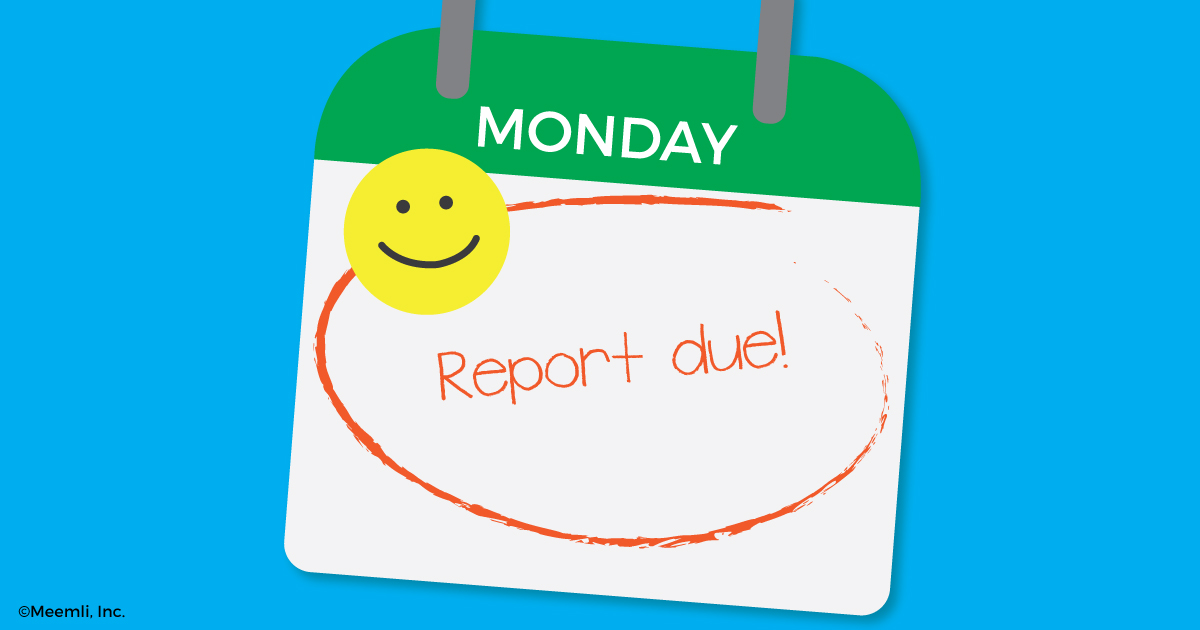5 Tips to Tame Assignment Anxiety
With the new year comes new year resolutions. Now’s a good time to get better at scheduling so you no longer pull all-nighters to cram for a test or rely on a steady stream of energy drinks to stay awake as you write your history papers.
Managing your time and staying on top of deadlines is a valuable skill that you’ll need throughout high school, college, your professional career – as well as in planning trips, weddings, birthday parties, in fact, life in general!
There’s no magic or superior powers needed. Just a few common sense tips to tame assignment anxiety.

Own it
No one else can make you study efficiently, or study at all. Your parents and teachers can give you suggestions and support — they may even nag and bribe you. But, at the end of the day, successfully completing assignments on time is your responsibility. So, take ownership of those responsibilities and your schedule to get them done. This is the first, and most critical, step.
Define dates
It’s probably obvious that you should write down your due dates somewhere you can remember and see easily. But here’s an even hotter tip: If the “real” due date is Monday morning, set your due date for Sunday.
Instead of only writing down the day you need to turn in the assignment, start to note when you need to have the work done by. For some, that could be the day before. For others who like getting things over with and done early, you could set your deadline for several days before the “real” due date.
Work backwards
Your project isn’t going to magically complete itself. If it’s a paper you have to write, there may be research to do or a first draft to submit for revision. If it’s another kind of project, you may need to create some multimedia. There’s a lot to get done before your due date.
You know yourself, what you’re good at, where you need help, and how long it takes you to get things done. Think of it as “managing effort” and not just “managing time” — you know how much effort you have to put in and when you would be able to do it. So plug in those dates working backwards from your due date.
Don’t put in a date that you wish would work, but one that will work for you — be realistic! Work with your schedule, your pace, and your needs.
Schedule helpers
Sure, you’ve got your deadlines and schedule figured out. But what about the people you have to work with? If you have a group project, your grade depends on how well your group members can manage their time, too.
Look carefully at the assignment when it’s handed to you and consider what you’ll need to do to complete it. Need to have your study group over to work together? Go ahead and schedule it. Reach out to your group members to set a time in advance. It may seem like a lot, but it pays off when you don’t have to scramble for time between other commitments.
As a related side note: Don’t be afraid to ask for help! Scheduling time to talk to your teacher, or other students who are doing well in the class, is a great thing to do for yourself. Those around you will be glad that you asked, and you’ll be taking ownership of your work by speaking up for yourself.
Pick just one
Everything on your schedule should be in one place. School, social, personal, and community commitments—write them all on one calendar so you can see what you need to do and how much time you really have available.
There are many apps available for your phone or tablet for scheduling and tracking homework. (This article is a good place to start to learn more about various time management apps.)
But if your school doesn’t let you use your phone in class, and you find yourself writing notes that you have to put in your calendar app later, you might want to rethink the system. Anything that has two steps and can be easily forgotten is a recipe for failure – trust us, we know this from painful experience!
Pick a calendar that you can use wherever you are. It could be a planner, an app, a spreadsheet that you create, or monthly calendar that you print out and put in a three-ring binder. Also, find a format that works for you. You may need one big monthly calendar, or several daily or weekly ones. The “bullet journal” is one option that uses both a monthly and a daily calendar. Just pick one that you like!
You got this!
Managing your effort with a focus on getting your work done on time is the key to school success. Once you start using a single calendar that works for you, setting your own due dates, and scheduling the time you need to work with others, you’ll be able to finish your assignments on time and stress-free – at least, with less stress (you’d probably still stress about the grades!).
Remember, you’re in control of your assignments, not the other way about. So take charge and make it work for you, you’re the boss!
Have your own nifty tips to share? We’d love to hear them!
